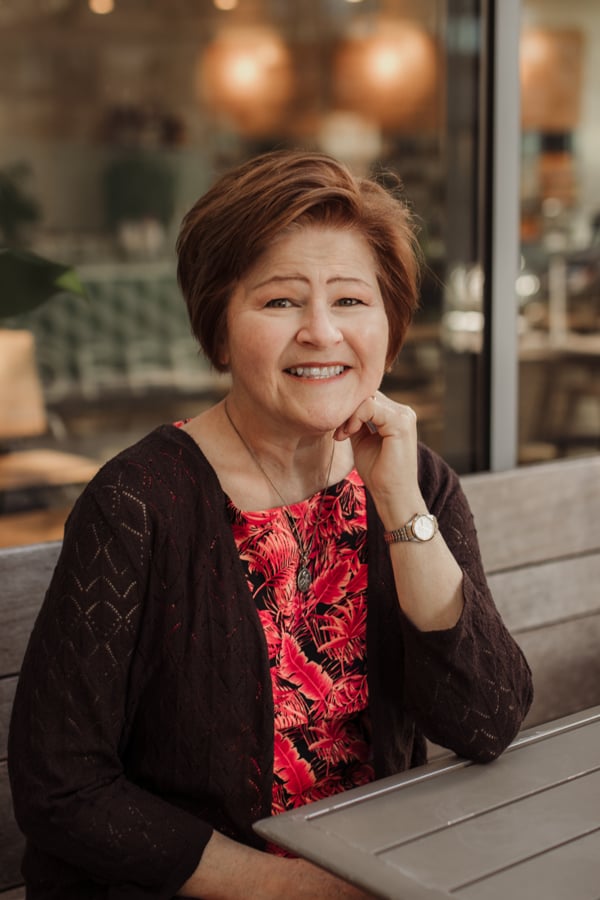 We buried a dear friend today. We’ve known Betty and her husband, Norm for more than 20 years and in the last few months the breast cancer Betty valiantly battled for nearly that same amount of time finally took her life. In the interim, we ended up working together on various projects and committees and eventually our lives entwined when we became members of the same apostolic community – a community Betty helped to found.
We buried a dear friend today. We’ve known Betty and her husband, Norm for more than 20 years and in the last few months the breast cancer Betty valiantly battled for nearly that same amount of time finally took her life. In the interim, we ended up working together on various projects and committees and eventually our lives entwined when we became members of the same apostolic community – a community Betty helped to found.
It’s been tough going on and off – the cancer, but also the founding of the community. All group endeavors have their unique challenges, and ours was no different. I like to joke about my Irish-German heritage by describing myself as “Irish enough for the temper to flare, German enough to keep it there.” Betty saw this in me, and so whenever I’d get myself in knots over a meeting or obstacle, she’d be the one to pull me aside in the hallway and gently admonish me.
“Get a grip on it, girl,” she’d scold, “Or you’ll do more harm than good.”
“Don’t let it get to you,” she’d encourage. “Stay above it.”
“No matter how bad things get,” she’d insist, “We have to act in all love and charity.”
Often – especially in the last couple of years – I’d feel as though I was at the end of my rope. Because of persistent sores cause by the radiation treatments and her overall fragility, Betty couldn’t give or receive hugs. So, she’d pull me aside, grab me by the shoulders, straighten me up and get me to look her in the eye. Then she’d clasp my hands in hers and say with deliberation, “Don’t you ever give up, girl!”
Today, as I stood looking down at our dear Betty lying so peacefully in the casket, I could almost hear her again saying, “Don’t you ever give up, girl!” The tears came, not in torrents, but in quakes from the deep-down pit of my gut. For Betty, giving up was not an option – not for herself, not for her loved ones, not for her community. She never gave up.
Betty, what will we do without you, I thought to myself.
The words of the priest at my father’s funeral more than 34 years ago echoed in my head. My older siblings were just entering their adult years and I was a mere 15 years old. Dad had suffered for years from a heart condition that limited his ability to be the father he had wanted to be. The priest said, “Dads are used to being the providers. It’s a great hardship for them when they can’t take care of their families as they’d like. Now your Dad can take care of you kids in a way he never could before.” Over the years, these words have brought me great consolation and helped me to develop a deepening relationship with my father, who I know works tirelessly to care for me and for my family.
As Catholics, we believe in the Communion of Saints and so we know that what the priest said about Dad applies to all or our beloved deceased: They’re able to care for us in ways they never could before. Now Betty can do so much more than admonish, encourage, and insist. She can intercede for me before God himself, and can keep the needs of not only me, but of all who she loves, present to him. Goodness knows I’m going to need all the prayers I can get to forge ahead. And so, Betty just has to keep on helping me from her new home and with her new faculties, and I’ll have to keep reminding her of my intentions. I’ll need her continued support, and I can be a pretty stubborn case. Perhaps it’s time for me to tell Betty, “Don’t you ever give up, girl!”
Copyright 2011 Marge Fenelon
About the Author

Marge Steinhage Fenelon
Marge Steinhage Fenelon CPLC, BPC is an award-winning author, international speaker, retreat leader, Certified Professional Life Coach, and Certified Brain Profiler qualified in Emotional Intelligence, Clifton Strengths, Temperaments, and Charisms. She has written several books on Marian devotion and Catholic spirituality. Her podcast, Simply Holy, airs on many popular podcast platforms. Learn more about Marge at MargeFenelon.com.


.png?width=1806&height=731&name=CatholicMom_hcfm_logo1_pos_871c_2728c%20(002).png)
Comments